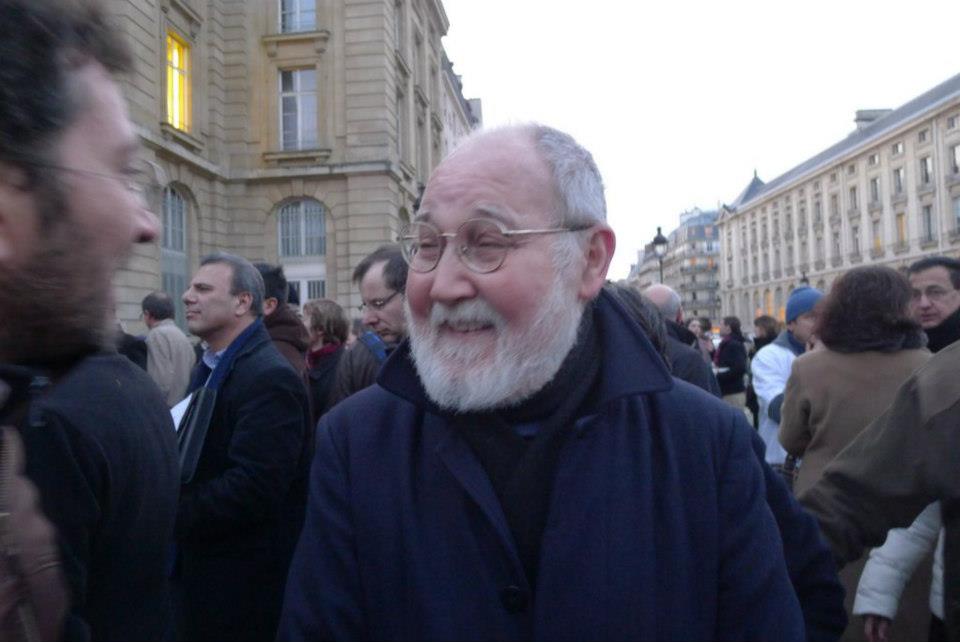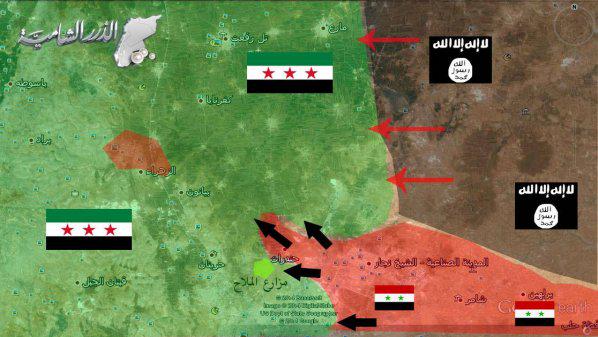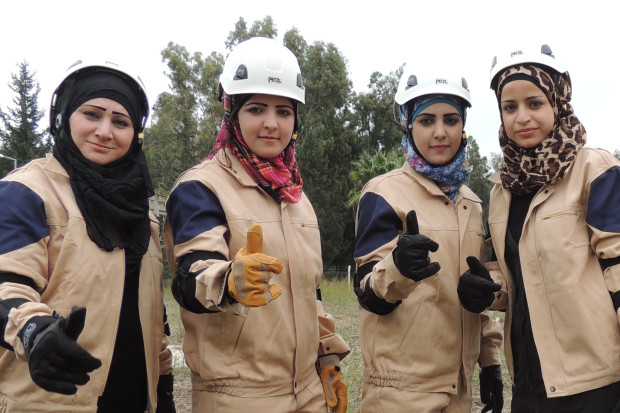
'As the uprising went through its gradual transition towards militarization, the Syrian Revolutionary Youth attempted to sustain the peaceful side of the uprising, maintaining that peaceful activism and armed struggle can go hand in hand. While generally supporting the Free Syrian Army, they frequently held banners criticizing what they considered violations by the armed opposition groups and insisted on defending national unity and rejecting sectarianism.
The Palestinian flag was lifted alongside the Syrian revolutionary flag; chants in solidarity with Palestine, and Gaza in particular, were chanted alongside slogans in solidarity with besieged and rebellious Syrian towns and cities; the names of Palestinian martyrs were mentioned in protests alongside the names of Syrian martyrs; young women and men protested and sang side-by-side; and calls for bread, gasoline and a dignified life for all were inseparable from their calls for the downfall of the regime, and the achievement of civil liberties and political freedom.
This December 30 marks one year since the arrest of seven of the collective's activists from a Rukneddine home by Syrian security forces. Their arrest remained largely unpublished with the families of the detainees demanding anonymity out of fear for their children’s well-being. Anonymity did not help. All but one of the seven detainees taken during that night raid have been reportedly killed under torture as confirmed by their cellmates.'































